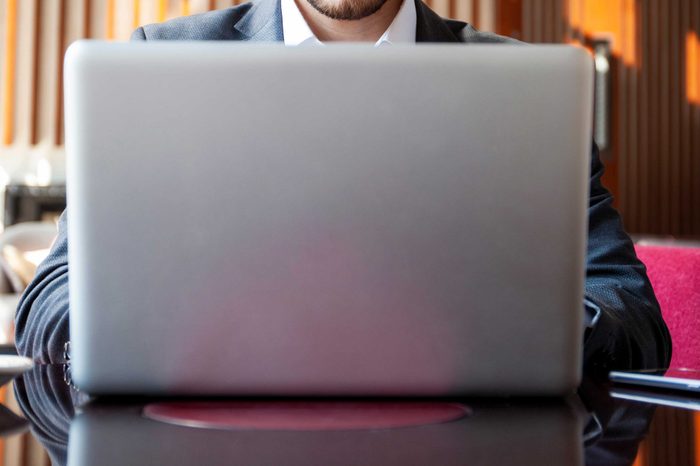
It’s tempting to remain logged in to your favorite websites on your smartphone, tablet, or laptop. But if you’re using a public computer or WiFi connection, that’s bad idea.
“You want to get out of the mindset of ‘well, I think it’s going to be easier for me to just leave my credentials logged in so I can quickly get my stuff,'” says Burton Kelso, chief tech expert at Integral.
Why? If you don’t log out of a website on a public computer, when the next person comes by, curiosity could win out. “So if you’re still logged into your bank account or your email accounts, then they’re going to start snooping to see what’s going on,” Kelso says. “That’s just human nature.”
How does it work? The sites use cookies stored in the browser to keep log-in credentials to provide to the site server whenever the site is revisited, says Monk, a security analyst for Advanced Operational Concepts. The cookies can be grabbed from the device via malware or even just by sniffing on an open network.
A lot of companies have since encrypted their cookies to avoid this risk, but that doesn’t mean they all do.
“It’s far safer to log in every time and use a reputable password manager,” Monk says. “Many offer auto-fill options to enter your log-in info automatically so you don’t have to type it. And of course always use a VPN when connecting to open networks.”
To protect yourself, here’s where you want to be sure you don’t stay signed in:
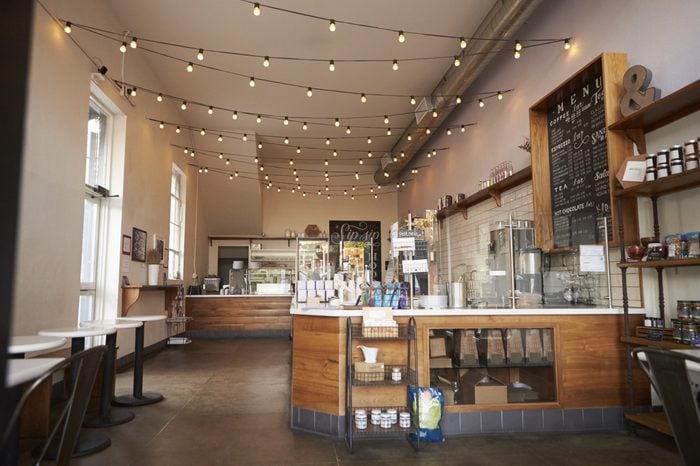
At a coffee shop
Hackers are attracted to high-traffic areas such as coffee shops. They set up fake wireless access points where users will connect. “Then, the hackers can monitor the information that’s going between your device, get all your account credentials, and steal all sorts of information,” Kelso says.
So if you do decide to use the public WiFi at the coffee shop, make sure it’s the right account and that you log out after every trip. “Because from the time that you last visited the coffee shop, maybe some criminal has figured out to fake that WiFi connection signal,” Kelso says. “So you go connecting to the hacker’s WiFi connection as opposed to the actual coffee shop.”
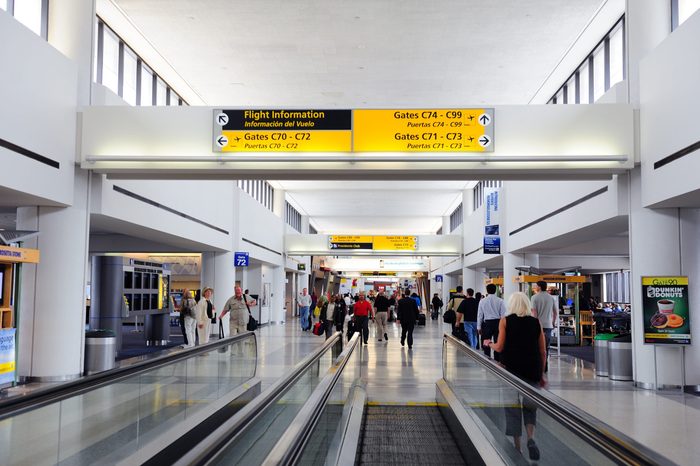
At the airport
Stuck at the airport and decide to do some online banking? Not smart. Airports are another high-volume location where hackers may target people who use public WiFi. And keep in mind it’s not just someone getting into your bank account that you need to consider. “If you’re a business owner and you use social media, there’s a good chance that there could be a credit card or two with that social media account where they can get whatever credit card is associated with that account and make purchases in your name,” Kelso says.
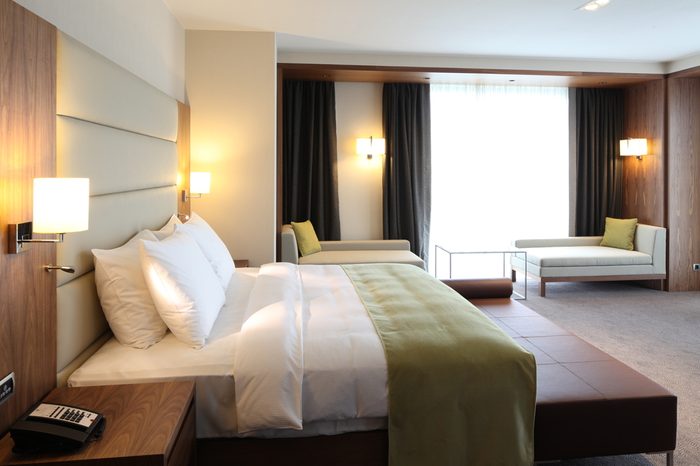
At a hotel
Hotel chains also have a lot of people looking for access to WiFi. Be careful about using any public computers in them. Because if you log onto an account, tell it to save your password information, and forget to log out, somebody else can come by and access your account. And if you’re logged on into your banking account, someone can go in and make changes. “They can transfer funds and they can change the two-factor identification to go to their device as opposed to your device,” Kelso says. “And there would be no indicator to you that a stranger logged into your financial account.” Make sure you don’t ignore these computer security warnings.

At an Airbnb
While Airbnbs may seem homier than a hotel chain, you should still be careful to log out from websites when you stay at one. Because you don’t know if their router is set up to collect your data. “You would hope that most of the Airbnb establishments have good intentions just to allow you public WiFi and a good night’s stay,” Kelso says. “But Airbnb is not able to vet everyone’s establishment that you stay at.”

In a communal workplace
Communal workspaces have become more popular, but you want to sign out of any websites when you’re working in one. “They may have a computer there and if you’re looking at QuickBooks online or personal finances in the workspace coop, you want to log out of that because it could put your business at risk,” Kelso says. Find out 15 computer mistakes you should have stopped making by now.
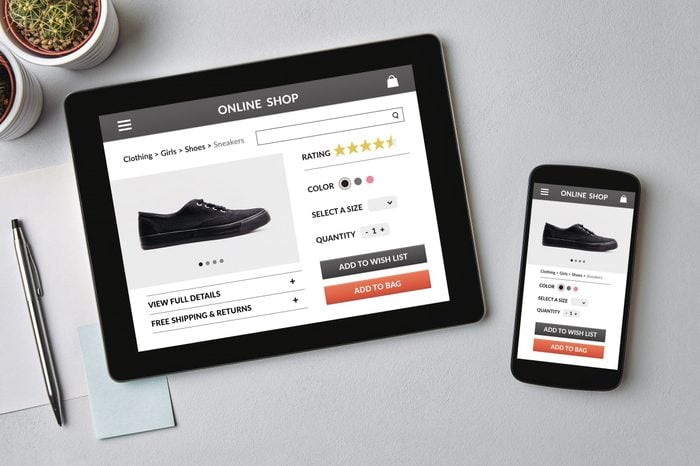
On a shopping website
Most shopping sites allow you to save your credit card information. But if you stay signed in to your account, someone could go in and start making purchases. Because most online accounts realize that people have a different billing address as opposed to the shipping address. “So the person can definitely order stuff, change the shipping address, and get merchandise on your dime,” Kelso says. Even in private on your home computer, one of your kids could make some unapproved purchases if you stay logged in.
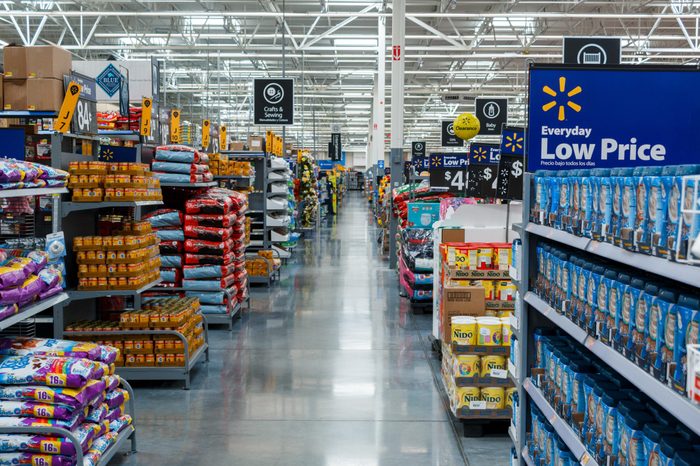
At Target or Walmart
Major stores such as Walmart and Target now provide WiFi. It’s tempting to use it and save on your data plan, but you need to check that you’re using their WiFi as opposed to hooking on to some criminal’s public hot spot, Kelso says. And then, of course, be sure to log out from any sites you access with your device.